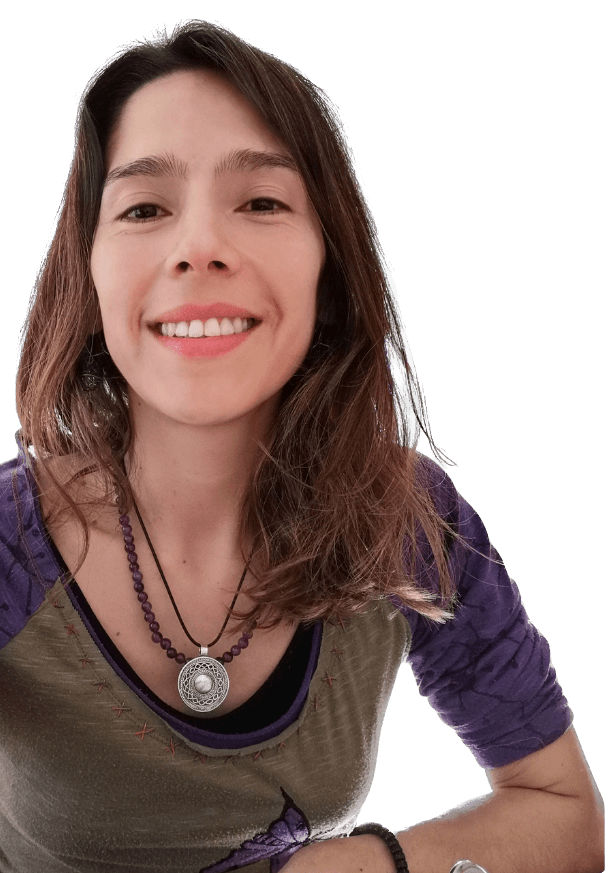

Through Compassion Corps, we enable certified compassion-based educators to deliver 8-week courses free of charge to communities in need around the globe.
By investing in these qualified teachers, we ensure access to effective and compassionate teaching methods, fostering a worldwide culture of understanding, empathy, and resilience.
Explore our grant opportunities today and join us in this global mission of cultivating compassion.
Applications for 2024 are closed. Stay tune for our next round of grants!
Want to help support our Compassion Corps programme? Please consider making a donation so that we can offer more grants to trainers to support communities in need
What Compassion Corps does
Compassion Corps is a program founded by Margaret Cullen providing free compassion trainings to communities in need, funded by grants awarded to certified teachers.
Compassion Corps grants are only offered to certified teachers of evidence-based programs and teachers apply for grants based on their personal connection to the communities involved. The grants, usually between $500-$1,500, support teachers in conducting 8-week programs on Mindful Self-Compassion, Compassion Cultivation Training, or Compassion-Based Cognitive Training for 20 people or more.
The program leverages existing community ties, upholds the science behind the training, and extends the reach of compassion training beyond the privileged. Compassion Corps not only fosters compassion and prosocial behavior among participants and trainers but also promotes a growing network of compassion and generosity.
Grants will be reviewed by a panel of highly experienced teacher trainers including Margaret Cullen, Gonzalo Brito Pons, Steve Hickman and Maria Paula Jimenez. Please note that priority will be given to first time applicants.
Compassion Corps aims to make compassion trainings (CT’s) accessible to communities who might not otherwise have access to these programs..
Importantly, grant applicants must have a personal connection to the community they aim to serve, demonstrating cultural sensitivity and understanding, as the program believes in the ineffectiveness of simply “parachuting” into a community to teach compassion.
Together, we can bring high quality compassion education to where it is most needed. Whether you are a certified teacher eager to share your program with a local community you care about or an individual inspired by the work of Compassion Corps, you are warmly invited to join this initiative. For a relatively small donation, you can have a huge impact on many lives.
Principles
Our Commitments
- Compassion Corps is committed to compassion in action.
- Compassion Corps is committed to relieving the systemic suffering of vulnerable populations.
- Compassion Corps is committed to ALL evidence-based compassion trainings, and endeavors to provide a platform where compassion trainers can unite for the greater good.
- Compassion Corps is committed to supporting certified teachers of evidence-based compassion trainings.
- Compassion Corps is committed to making service sustainable.
- Compassion Corps is committed to creating upward spirals of compassion through sharing inspiring stories and mapping the spread of compassion.
- Compassion Corps is committed to creating opportunities for meaningful service and philanthropy, where small contributions can have a large impact.
- Compassion Corps is committed to meeting the unique reality of each community by allowing flexibility to modify programs as necessary and by inviting grantees to share best practices.
Communities of Need
Compassion Corps exists to broaden the accessibility of compassion trainings (CT’s), specifically to those who would not otherwise be able to afford to participate.
Occasionally, a community of need may be defined by a characteristic other than financial need. These individuals may be particularly susceptible to burnout and emotionally challenging experiences in their daily lives. For example, Arkansas-based teacher Dent Gitchel was granted Compassion Corps funds to teach CCT to social activists working on the front lines of the national elections in Arkansas and Adam Burn offered CCT to staff and family members at NAMI (National Association of Mental Illness).
Perhaps most importantly, in the application for a Compassion Corps grant, a teacher must identify not only a community of need, but one in which they already have a personal connection. It doesn’t work to “parachute” into a community to teach compassion. In addition to a license to teach, grantees must demonstrate a degree of cultural sensitivity towards, and understanding of, the communities they wish to serve.
The Science
Compassion Corps is informed by research that supports the potential for compassion programs to inspire the “viral” spread of compassion. In 2010, James Fowler and Nicolas Christakis published an important article in the Proceedings of the National Academy of Sciences, demonstrating how cooperative behavior cascades in human networks, and specifically how it can spread to people who were not part of the original interaction (i.e. watching a video about a program on this website!).
In 2020, Sara Algoe et al published a similar paper in the Journal of Personality and Social Psychology about the power of the “witnessing effect”. They demonstrated that third parties felt gratitude simply by witnessing an act of generosity towards another person that didn’t involve them directly.
In 2020, Haesung Jung et al published a meta analysis of extant research on prosocial modeling in the Psychological Bulletin demonstrating that, across 88 studies in two decades, the prosocial modeling effect generalized across different types of helping behaviors, different targets in need of help, and was robust to experimenter bias.
About the founder

Margaret Cullen
Margaret Cullen is a licensed psychotherapist and a pioneer in bringing contemplative practices into mainstream settings. She was one of the first ten people to be certified as an MBSR instructor and has taught around the world.
She has led research studies on the impact of contemplative programs for a wide variety of populations across the US and co-developed the Compassion Cultivation Training with Thupten Jinpa at the Stanford University School of Medicine and the Mindfulness-Based Attention Training for military spouses with Amishi Jha at University of Miami. She is the founder of Compassion Corps, a program which brings compassion programs to underserved populations around the world. She also developed Mindfulness-Based Emotional Balance and co-authored a book about it with Gonzalo Brito Pons. She is a Senior Teacher and Curriculum Developer for Humanize, which is a contemplative-based dyad program founded by German neuroscientist Tania Singer. Margaret is a Mind and Life Fellow, on the advisory board of the Global Compassion Coaltion and has been a meditation practitioner for over 40 years.
Angola Prison Project – Lara Naughton
05 – Angola Video Edited 2-Broadband High
03 – CC assylum video-Broadband High
05 – Angola Video Edited 2-Broadband High
Our Past Projects

Sara Schairer
CCT Program | San Diego, CA, USA
CCT® at Las Colinas Detention and
Reentry Facility
Sara Schairer is the founder of the nonprofit Compassion It and has taught Compassion Cultivation Training® since 2013. She leads compassion education trainings for audiences of all walks of life around the globe. It’s mission is to inspire daily compassionate actions and attitudes, and Sara believes in making compassion accessible to all.
Sara led the eight-week course Compassion Cultivation Training® for the inmates at San Diego County’s women’s jail.
Participants included grandmothers, mothers, sisters, aunts, and friends. Each of them pursued the goal of being reunited with the people they love.
One participant shared that when someone in the dorm annoved her, which would typically morph into anger, she could instead remind herself that this person is loved by someone. She was able to skillfully walk away without feeling negative.
Many participants shared that because of CCT® they could be better listeners and be more present with their fellow inmates and their family members.

Lara Naughton
CCT, MBSR | Louisiana, USA
Angola Prison Compassion
Program
Lara Naughton is a writer and teacher based in Louisiana.
Angola Prison Compassion Program at the Louisiana State Penitentiary at Angola, LA. The Program brings members of the criminal justice system together as partners in healing, altruism and change. The primary focus program is CCT instruction for incarcerated individuals.
Additional components include compassion workshops with incarcerated persons, and business and political leaders; “A Day of Compassion” public conferences held at Angola; a teaching assistant program for incarcerated compassion mentors; and a book co-written by incarcerated and non-incarcerated collaborators.
The men and women in prison, at some point, disconnected. This disconnect may cause calloused and hardened hearts.
Compassion in corrections is a way to help us reconnect. Reconnect to what it means to be human. Because we are all born with compassion woven into the fibers of our very being, it becomes a matter of bringing us into touch with what is already there. Hence, the use of cultivation.” Eric, Teaching Assistant

Miguel Riutort
CCT Program | Palma de Mallorca
Asociación Tardor
“Tardor” is an association with 2 reception centers for the homeless in Palma (Spain): “Inge” and “Kurt”.
This Association was born in 2009, with the mission to alleviate the effects of poverty and social exclusion for people who are left out of the welfare system.
The participants of this CCT are homeless men and women living temporarily in residential centers of this Association.
The impact has been positive and constructive for all persons.

Dent Gitchel
CCT Program | Little Rock, AR, USA
CCT for Social Advocates / Clergy
Dent is a long term meditator, educator and mental health professional. He has a long developed interest in Compassion cultivation, beginning with the methods of Tibetan Buddhism and spreading to secular and mental health based approaches. He was one of the first persons certified in the first cohort of CCT trainees.
He has led two compassion corp initiatives: CCT for social advocates and CCT for clergy.
These initiatives targeted frontline helpers who encounter vast amounts of suffering in their jobs and work explicitly to alleviate suffering both on individual and systemic levels. These projects affirm the inherent dignity, kindness and resilience that is at the heart of human flourishing.
The participants included clergy, social workers and other professionals working on the frontline of social justice initiatives. The classes helped foster a sense of community in those in frontline positions, and helped participants to tap into their inherent compassion, courage and resilience, and to view the world through the eyes of common humanity.

Adam Burn
CCT Program | Portland, OR
NAMI Santa Clara
My family has been largely affected by the presence of mental illness. And while I have been unable to help my family members in ways I have hoped for, I decided I wanted to try and be of service to someone else’s, so I shared CCT with The National Alliance on Mental Illness (NAMI) Santa Clara County Chapter.
We offered the course to staff and peer support team members, who worked a crisis line and offered groups to consumers and their families in need; difficult work and the need for resilience and resources like CCT is great.
The experience could not have been more moving and I was blown away by how quickly the class took form and how engaged, open, and supportive everyone was throughout.

Flavia C. Kolehraiber
CBCT and MBPM | São Paulo, Brazil
Excellence in Care
Thinking about the present and future of Parelheiros, on the outskirts of São Paulo, we invested in childhood since pregnancy. For life to continue with health. in a climate of lovingness, security and well-being, a wave of care for the mind (compassionate meditation classes), body and heart has spread to more people and other communities. Extending the effects of this wave with the CBCT to more mothers, fathers, caregivers and teachers warms the heart and engages us to invest and develop compassion as a community.
The greatest impact is the strengthening of care communities with emotional, social and ethical literacy. Mainly women have benefited and expanded learning at home and at work.

Nitesh Batra
CCT Program | Bengaluru, India
Teach Facilitators/Staff of Dream a
Dream Foundation
I feel extremely fortunate to work with Dream a Dream Foundation to work with facilitators who teach life-skills using football and art to elementary and middle school students.
Each experience of teaching CCT is unique but this project gave me an opportunity to look inside the lives of people who serve the needy and at-risk population very closely.
The course empowered these facilitators to incorporate compassion in their lives and empowered them on a path of living a compassionate life. Here is the link to the blog describing my experience.

Claudia Bernales
CCT Program | Chile
NAMI Santa Clara
My project has been for employees who work in the most complex area of the SENAME (National Service of Infants of Chile): professionals who work with the kids who have been highly vulnerable in their human rights, with complex families and have been judicialized by the state in order to restore their human’s rights.
This team evaluates, gives treatment and takes care of the kids while they stay in public hospices. Also the lack of resources of the institution adds extra stress in many ways.
Personally I grow up surrounded by this topic because my mother was a social worker who dedicated her vocation to help segregated people through the public system. She is my maximum inspiration.
